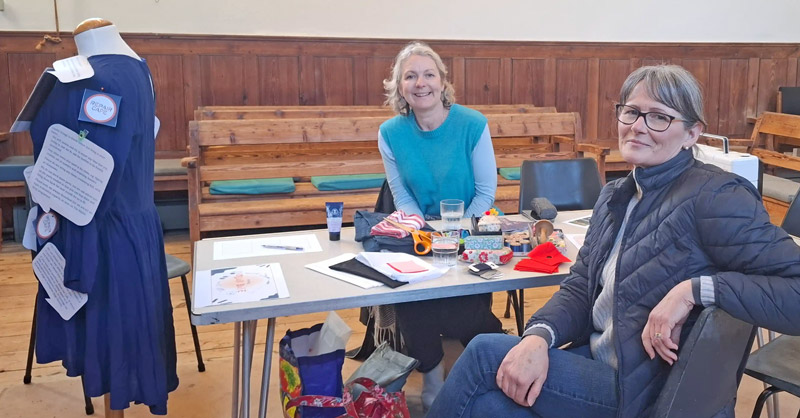The Circular Dorking Blog
A wolf in cheap clothing
18th April 2025

Did you know that every item of clothing you have ever owned is probably still in existence?
This was just one of the sobering facts we heard at the February Eco Hub.
In ‘A wolf in cheap clothing’, speaker Lorna Scott told us about the impact of fast fashion. She explained how fashion is the second biggest polluter – after oil – and how it is estimated that our love of the latest ‘must have’ clothing is responsible for 10% of all global CO2 emissions.
Lorna used the lifecycle of a t-shirt to illustrate the damage done by even the simplest of garments, highlighting the types of damage that might not have occurred to us, from the pollution caused by transporting new clothes from one side of the world to the other, to the appalling working conditions within the garment industry and the impact on developing nations of being used as a dumping ground for our cast-off clothes.
Some of the facts were truly horrifying, not least that:
- It takes 2,700 litres (or two years’ worth of drinking water for one person) to produce a single t-shirt
- Only 10% of cotton grown is organic
- Many of the most common pesticides are carcinogenic
- Even after mass protests, the garment workers of Bangladesh are paid just half of what they need to survive without debt
- Workers at the likes of fast-fashion giant Shein are paid 4p per garment and can be fined two-thirds of their daily wage for making a single mistake
- Many of our best-loved brands (such as John Lewis and M&S) are guilty of ‘greenwashing’, in other words, they are not as environmentally conscious as they would have us believe
- The average person wears an item of clothing just seven times before disposing of it
- Plastic in clothing makes it cheaper but harder to dispose of
Much of this predicament can be blamed – fairly – on the corporate world. Years ago, ‘silhouettes’ changed once a decade. Today, thanks to marketing and social media, fashion trends last on average a month. We are undoubtedly at the mercy of aggressive marketing, but how this story plays out is also very much down to our choices.
What can we do?
Lorna suggested four key actions:
- Mending or altering the clothes we already have
- Buying second-hand clothes where possible
- Organising clothing swaps
- Talking – gently – to the people in our lives about the environmental impact of fast fashion and how they could help combat it.

Members of Dorking Repair Café were on hand to demonstrate darning and patching.
Thank you to author Tara Craig
